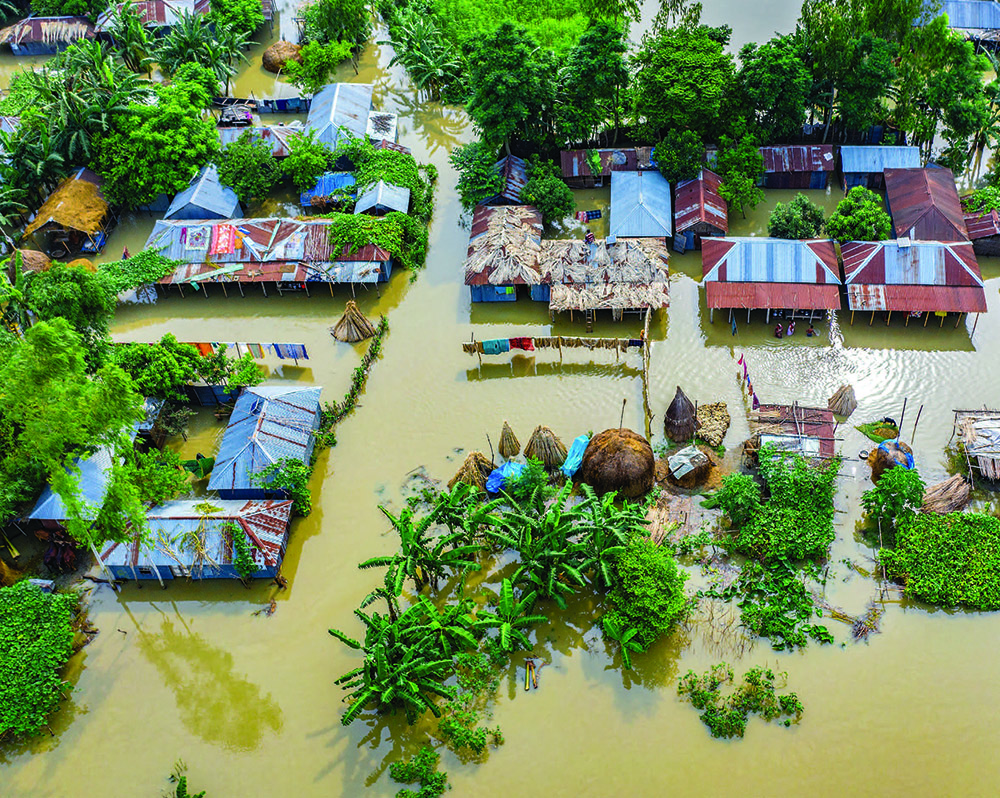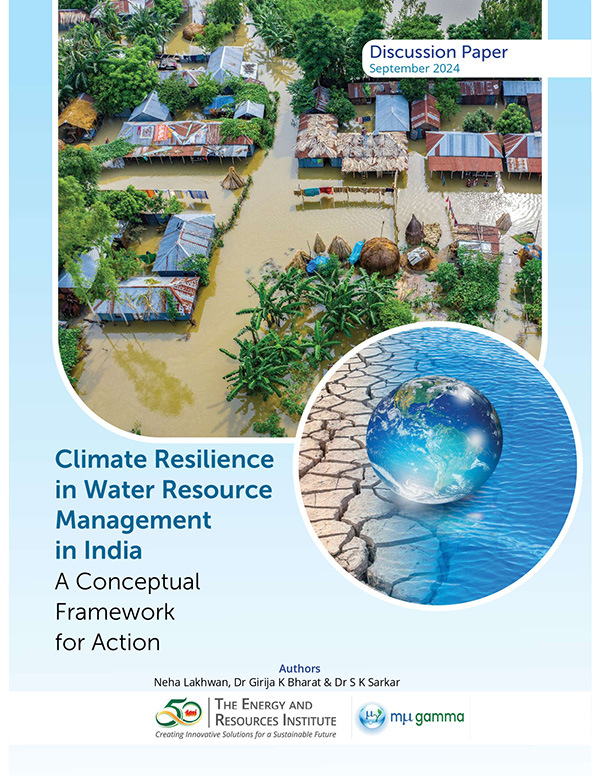Climate Resilience in Water Resource Management in India: A Conceptual Framework for Action
The water sector in India is facing increasing variability and unpredictability of water resources due to climate change. This is compounded by inadequate infrastructure for water storage and distribution, and the insufficient integration of climate resilience into water management policies. This is highlighted by the IPCC's Sixth Assessment Report. Key threats include extreme weather events, rising temperatures, erratic monsoons, and sea level rise, impacting agriculture, industry, ecosystems, and overall water security.

To build a sustainable future, climate-resilient water management strategies are imperative. These include integrated water resources management (IWRM), nature-based solutions (NbS), and advanced technologies further aided by policies and laws. Both adaptation and mitigation strategies are necessary: adaptation builds resilience against immediate impacts, while mitigation contributes to long-term sustainability by reducing greenhouse gas (GHG) emissions. Establishing robust systems for the continuous monitoring of water resources and climate data by upgrading meteorological and hydrological stations and utilizing advanced technologies such as remote sensing and GIS for better data accuracy would be vital for resilient water infrastructure. It is vital to strengthen institutional frameworks by ensuring that water management policies incorporate climate resilience principles by revising existing policies, enhancing coordination between different governmental agencies, and involving local communities in decision-making processes.
By embracing innovative solutions, fostering partnerships, updating regulations, laws, improving administration and encouraging community participation, India can build a climate-resilient water future. This approach will help ensure water security and facilitate the achievement of the Sustainable Development Goal (SDG)-6 (Clean Water and Sanitation) and several aligned SDGs.
Implementation of IWRM principles would foster collaboration among various sectors, including agriculture, industry, and urban development, to create a cohesive water management strategy that optimizes resource use and reduces conflict. Enhancing data collection and monitoring systems by deploying advanced technologies such as remote sensing, GIS, and IoT-based sensors to improve the accuracy and reliability of water and climate data. These could be presented on centralized databases and platforms for real-time data sharing among stakeholders, ensuring informed decision-making processes. This would help to the development of comprehensive strategies that address both local and national water challenges towards water security in India.

